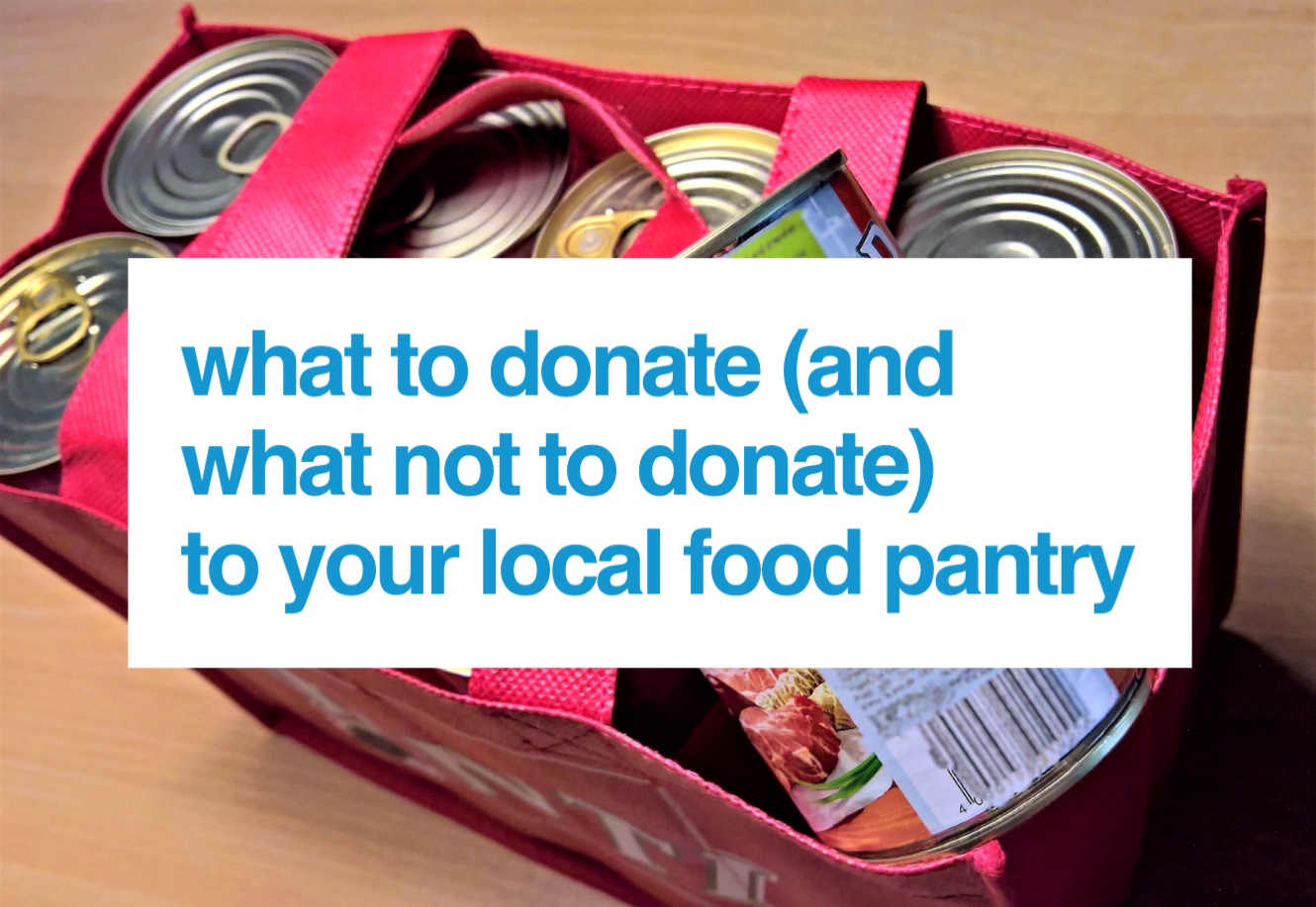What to Donate (and What Not to Donate) to Your Local Food Pantry
Yesterday my church started collecting money and canned food for our "SOUPer Bowl Sunday." The donations go to our local food pantry, which is very small but still manages to serve thousands of people every year. Personally, I like to donate to my local food pantry because I can be sure that my money is going to a good cause. After all, food is one of our most basic survival needs. Good nutrition is essential, especially for children because they are still developing. And sadly, 21% of children in the U.S. are living in poverty—nearly double the rate of poverty for adults. Also, about 1 in 8 American households are food insecure, which means that they lack reliable access to a sufficient amount of nutritious food. This shows that poverty and malnutrition are not just problems that happen "somewhere else." They may, quite literally, be going on in your own neighborhood.
So, which items are best for donating to your local food pantry? And which ones should you avoid? Yes, all donations are appreciated, but some will have more of an impact than others. For example, it's generally a bad idea to donate perishable items (such as fresh fruits and vegetables). These items may spoil before they get to a family in need. Also, avoid donating foods that are high in salt and/or refined sugar. For example, lots of soups are high in sodium, which can contribute to high blood pressure. And fruit is often canned in sugary syrup, which can cause cavities and other health problems.
Generally, food pantries need 3 kinds of items: fruits/vegetables, grains, and proteins. Proteins especially are in high demand because they tend to be expensive. It's good to donate at least one item from each category to make sure that people can have a well-rounded diet. Here are some suggestions for each category:
Fruits & vegetables
• Unsweetened applesauce
• Mandarin oranges (no sugar added)
• Canned peaches (no sugar added)
• Canned pears (no sugar added)
• Canned pineapple (no sugar added)
• Canned green beans
• Canned carrots
• Canned tomatoes
• Pasta sauce
Grains
• Canned corn
• Rice
• Pasta
• Oatmeal
• Whole-grain crackers
• Cheerios or another whole-grain cereal
Protein
• Canned chicken breast
• Canned tuna
• Beans
• Peanut butter
• Beef jerky
• High-protein, low-sodium soups
• Shelf-stable milk
You may wonder if your donation will truly make a difference—but trust me, it will. Every can of food will have an impact on a person's life. Not only will that person's physical needs be met, but he/she will have a tangible reminder that someone loves and cares for him/her.
"If you can't feed a hundred people, then feed just one." —Mother Teresa

Comments
Post a Comment